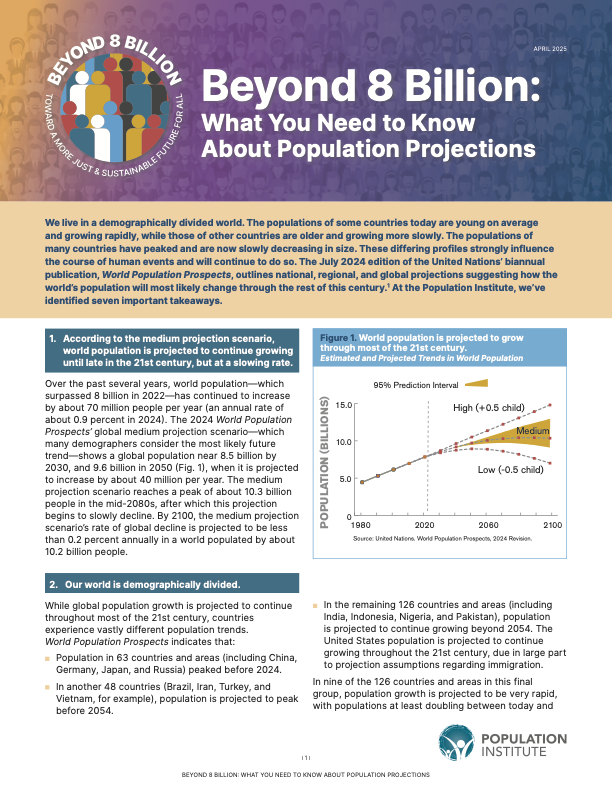We live in a demographically divided world. The populations of some countries today are young on average and growing rapidly, while those of other countries are older and growing more slowly. The populations of many countries have peaked and are now slowly decreasing in size. These differing profiles strongly influence the course of human events and will continue to do so. The July 2024 edition of the United Nations’ biannual publication, World Population Prospects, outlines national, regional, and global projections suggesting how the world’s population will most likely change through the rest of this century. At the Population Institute, we’ve identified seven important takeaways.
Beyond 8 Billion: What You Need to Know About Population Projections
WATCH THE VIDEO: Beyond 8 Billion: What You Need to Know About Population Projections
BLOG: The Dangerous Distraction of Population Decline Alarmism
EVENT: Demographic Realities: THE TRUTH ABOUT Global Population Trends
In advance of World Population Day, the Population Institute co-hosted a virtual dialogue with Foreign Policy. The event featured speakers from UNFPA, UN Women, FP2030, and thought leaders from civil society. Speakers clarified global population trends and discussed the dangers of recent population decline alarmism narratives that often misrepresent these trends. Population trends vary widely across countries, with significant implications for national economies, healthcare systems, and social protection infrastructure. Policies on gender equality and family planning play a direct role in shaping population dynamics, and are deeply intertwined with broader social, economic, and environmental challenges. Understanding these patterns offers valuable insights into how nations can respond to and invest in the evolving needs of their populations. The Population Institute partnered with FP Analytics to develop an Insight Brief that explores these trends and focuses on the urgent need to prioritize reproductive rights and autonomy in the population policy dialogue.
